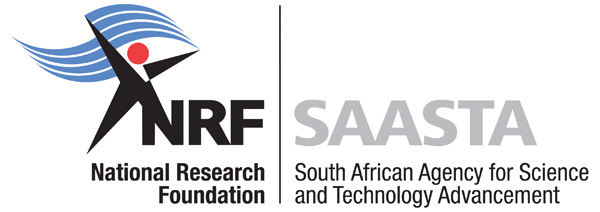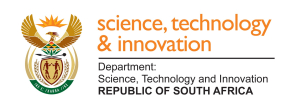Aspiring Science Communicators Honoured at the University of Limpopo’s Graduation Ceremony
A Milestone for Science Engagement in South Africa
6 May 2025

Celebrating Excellence in Science Communication: The University of Limpopo’s 2024 PGDip SciComm Graduates
In a historic occasion on the 11 April 2025, the second cohort of students registered for the accredited Post-Graduate Diploma in Science Communication or PGDip SciComm at the University of Limpopo were honoured for completing the one-year qualification that aspires to build capacity for science engagement in South Africa. The programme is funded by the Department of Science, Technology and Innovation (DSTI) and administered by the National Research Foundation through the South African Agency for Science and Technology Advancement (NRF-SAASTA).
The PGDip SciComm graduation ceremony is more than a celebration of academic achievement and excellence, it is a bold commitment by DSTI to advancing public science engagement and enhancing science literacy across diverse communities. NRF-SAASTA as the implementing agency of the DSTI science engagement programme, plays a key role in administering financial support and overseeing the implementation of science engagement initiatives by the students as part of the broader mandate to promote public science engagement. Through the university application process, 41 students who met the requirements to enrol in the PGDip SciComm programme for the 2024 academic year were identified. NRF-SAASTA provided financial support to these students. At least 15 of the students that graduated are representatives from various organisations within the National System of Innovation including the Council for Geoscience (CGS), National Research Foundation, Department of Basic Education, Science Centres (University of Limpopo, University of Venda, Sci-Bono Discovery Centre), South African Nuclear Energy Corporation and community media radio stations.
Speaking at the ceremony, one of the graduates, Mr. Rofhiwa Raselavhe from the CGS conferred with the PGDip SciComm (Cum Laude), reflected on his journey: “I want to thank God and everyone who supported me throughout this journey. This course has truly complemented my work, and I encourage all science communicators to give it a try”. Ms Radebe Zamahlubi Fortunate from NRF-SAASTA who was also conferred with the PGDip SciComm (Cum Laude) qualification remarked, “I owe everything to God and unwavering support of my loved ones, balancing work and academics has not been easy, but with relentless hard work and determination, I made it through”.
The graduates of the 2024 cohort have already begun making significant contributions to various sectors, including science centers, museums, non-governmental organizations, government agencies, and media outlets. Through implementation of science engagement initiative as a way of giving back to the community projects and they will continue for a period of two years after completion of their studies.
About the programme
The PGDip SciComm stands as a flagship initiative that supports the DSTI Science Engagement Strategy which envisions a society that is science literate, aware and that critically engaged with science to the benefit of society. In line with the third strategic aim of the Strategy, i.e. to promote science communication that will enhance science engagement in South Africa, the DSTI has identified the University of Limpopo as the first higher education institution in South Africa to develop and offer an accredited Post-Graduate Diploma in Science Communication. This qualification enables professionals interested in science promotion and engagement to develop essential communication skills and specialised science communication expertise. The accredited science communication training is essential for practitioners and aspiring mediators to effectively engage with diverse audiences. It provides the necessary skills, knowledge, and ethical understanding to bridge the gap between science and society, inspire interest, and promote informed decision-making. The qualification serves as a key pipeline for the nurturing of skilled science communicators who can bridge the gap between researchers, policymakers, and the public. This aligns with the national goal to promote responsible science communication that informs decision-making and inspires public trust in science.

 The South Africa Agency for Science and Technology Advancement (SAASTA) is a business unit of the
The South Africa Agency for Science and Technology Advancement (SAASTA) is a business unit of the 